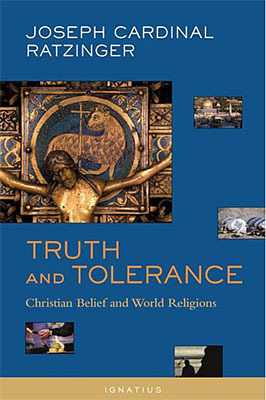
Truth and Tolerance
Delivery in 2-9 business days.

Is truth knowable? If we know the truth, must we hide it in the name of tolerance? Cardinal Ratzinger engages the problem of truth, tolerance, religion and culture in the modern world. Describing the vast array of world religions, Ratzinger embraces the difficult challenge of meeting diverse understandings of spiritual truth while defending the Catholic teaching of salvation through Jesus Christ. "But what if it is true?" is the question that he poses to cultures that decry the Christian position on man's redemption. Upholding the notion of religious truth while asserting the right of religious freedom, Cardinal Ratzinger outlines the timeless teaching of the Magisterium in language that resonates with our embattled culture. A work of extreme sensitivity, understanding, and spiritual maturity, this book is an invaluable asset to those who struggle to hear the voice of truth in the modern religious world.
"Beyond all particular questions, the real problem lies in the question about truth. Can truth be recognized? Or, is the question about truth simply inappropriate in the realm of religion and belief? But what meaning does belief then have, what positive meaning does religion have, if it cannot be connected with truth?" -- Joseph Cardinal Ratzinger
"No one can understand the world at all, no one can live his life rightly, so long as the question about the Divinity remains unanswered. Indeed, the very heart of the great cultures is that they interpret the world by setting in order their relationship to the Divinity."
"For the real problem of mankind is the darkening of truth. This distorts our action and sets us against one another, because we bear our own evil within ourselves, are alienated from ourselves, cut off from the ground of our being, from God."
"A first point we should note is that faith itself is cultural. It does not exist in a naked state, as sheer religion. Simply by telling man who he is and how he should go about being human, faith is creating culture and is culture."
"Technological civilization is not in fact religiously and morally neutral, even if it believes it is. It changes people's standards and their attitudes and behavior. It changes the way people interpret the world, from the very bottom up. The religious cosmos inevitably starts to shift on account of technology. The arrival of these new opportunities in life is like an earthquake that shakes the spiritual landscape to its foundations. What takes place with increasing frequency, at any rate, is that the Christian faith is shaken off for the sake of people's own authenticity, and in the realm of religion the pagan religions are restored, while at the same time technology, although it is no less Western, is passionately received and applied."